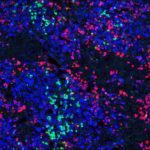Lien vers Pubmed [PMID] – 33352166
Lien DOI – S0016-5085(20)35568-210.1053/j.gastro.2020.11.056
Gastroenterology 2021 April;160(5):1437-42
Worldwide, more than 257 million people are persistently infected with hepatitis B virus (HBV), which can lead to a broad spectrum of disease outcomes, including cirrhosis and/or hepatocellular carcinoma. HBV can be effectively prevented with a prophylactic vaccine, and currently approved antiviral therapy can suppress viremia but hardly cure the underlying infection. New insights into the viral life cycle and HBV’s interactions with the host cell have reignited efforts to devise improved antiviral therapies with the ambitious goal of completely eradicating HBV or permanently inactivating the virus in patients. Systematic testing of approaches to cure HBV has been hampered by the scarcity of animal models faithfully recapitulating infection and the clinical features associated with chronic hepatitis B.
HBV is a partially double-stranded DNA virus of the Hepadnaviridae family, genus Orthohepadnavirus. Although viruses genetically similar to HBV have been identified in a variety of species,1 the etiologic agent of HBV in humans has a remarkably narrow tissue and host range, limited to hepatocytes in humans and chimpanzees.2,3 The mechanistic basis for this highly restricted tropism has not been fully deciphered, and consequently it has proven difficult to establish the entire viral life cycle in traditionally nonpermissive species.


